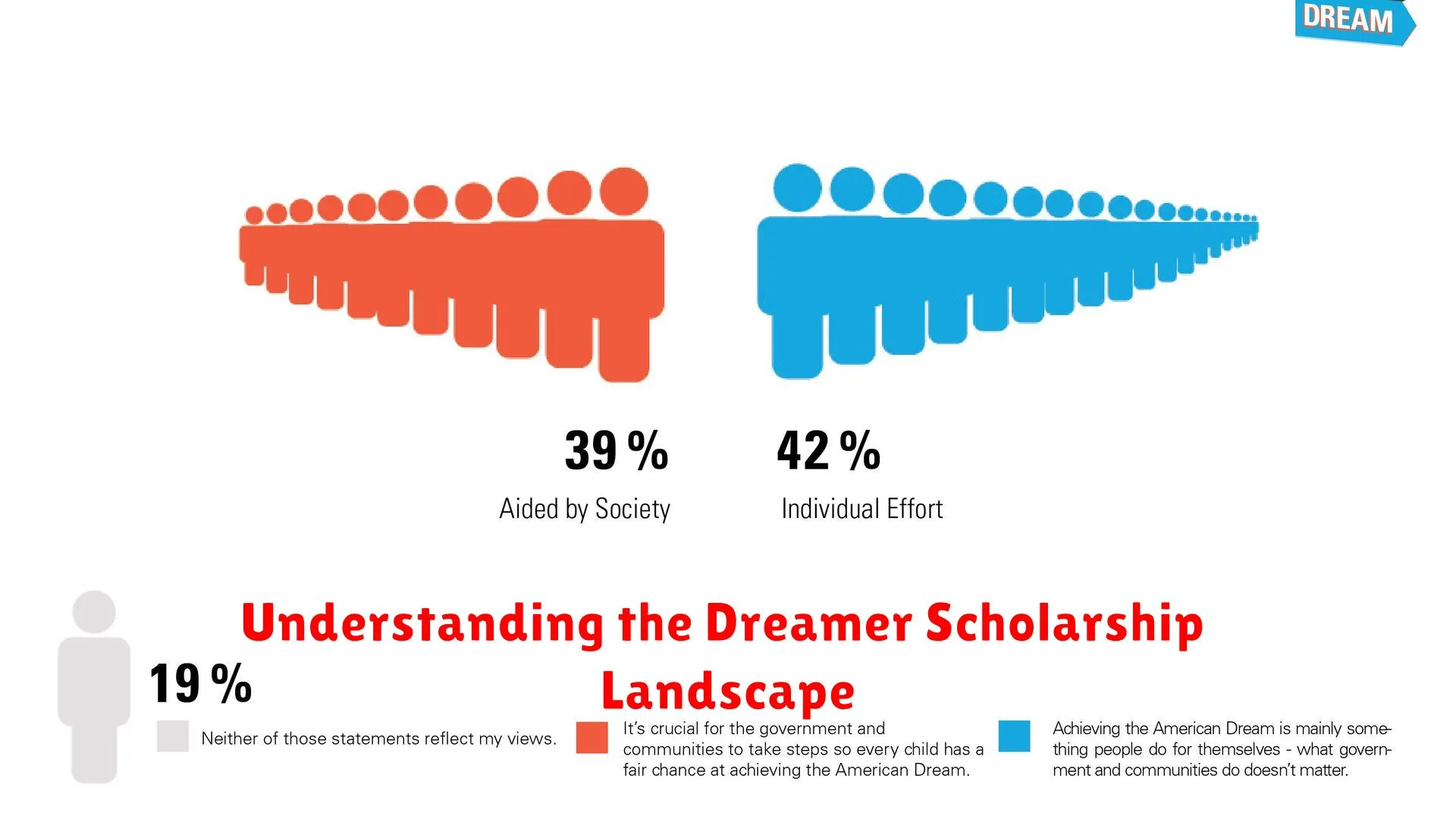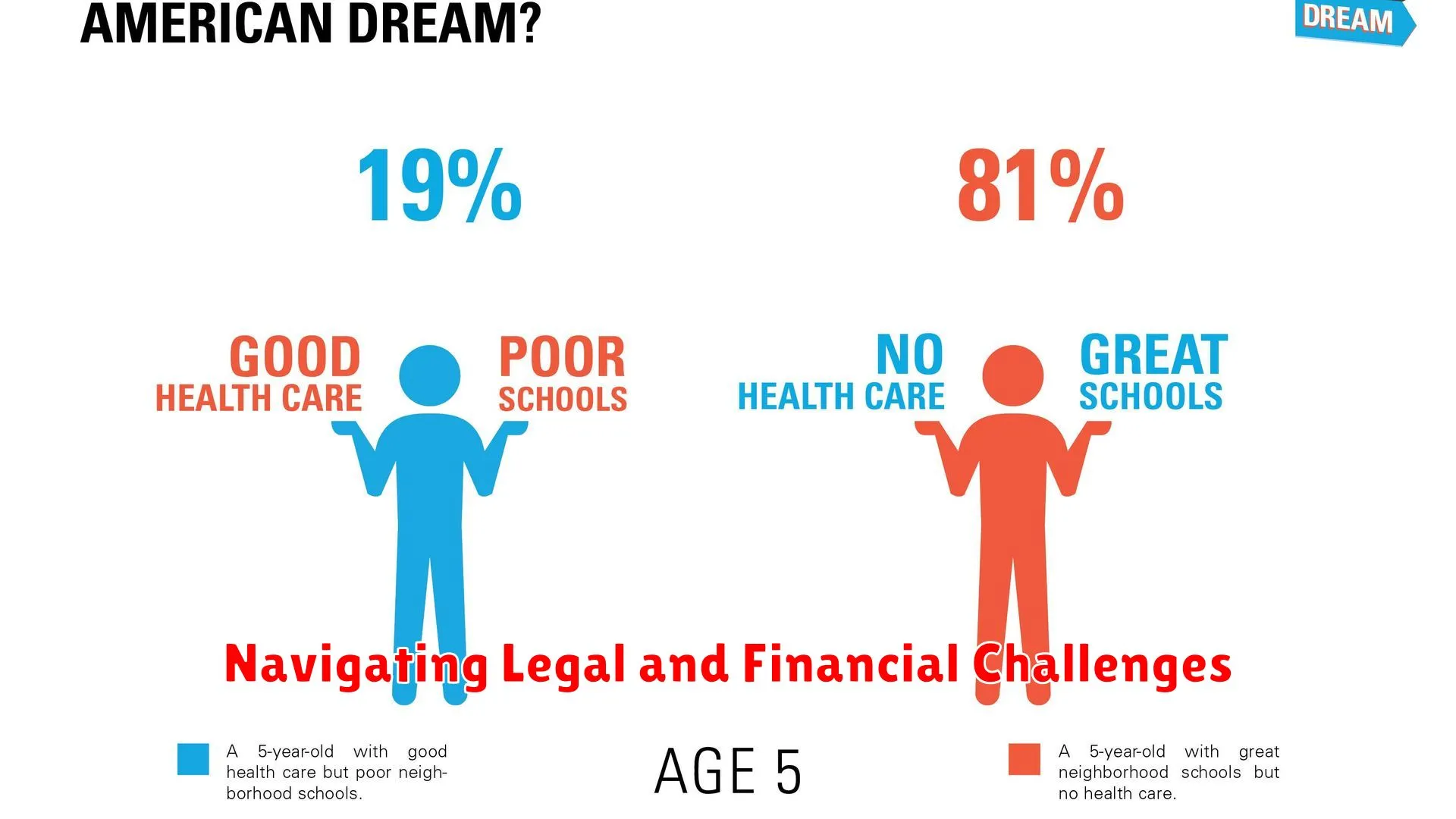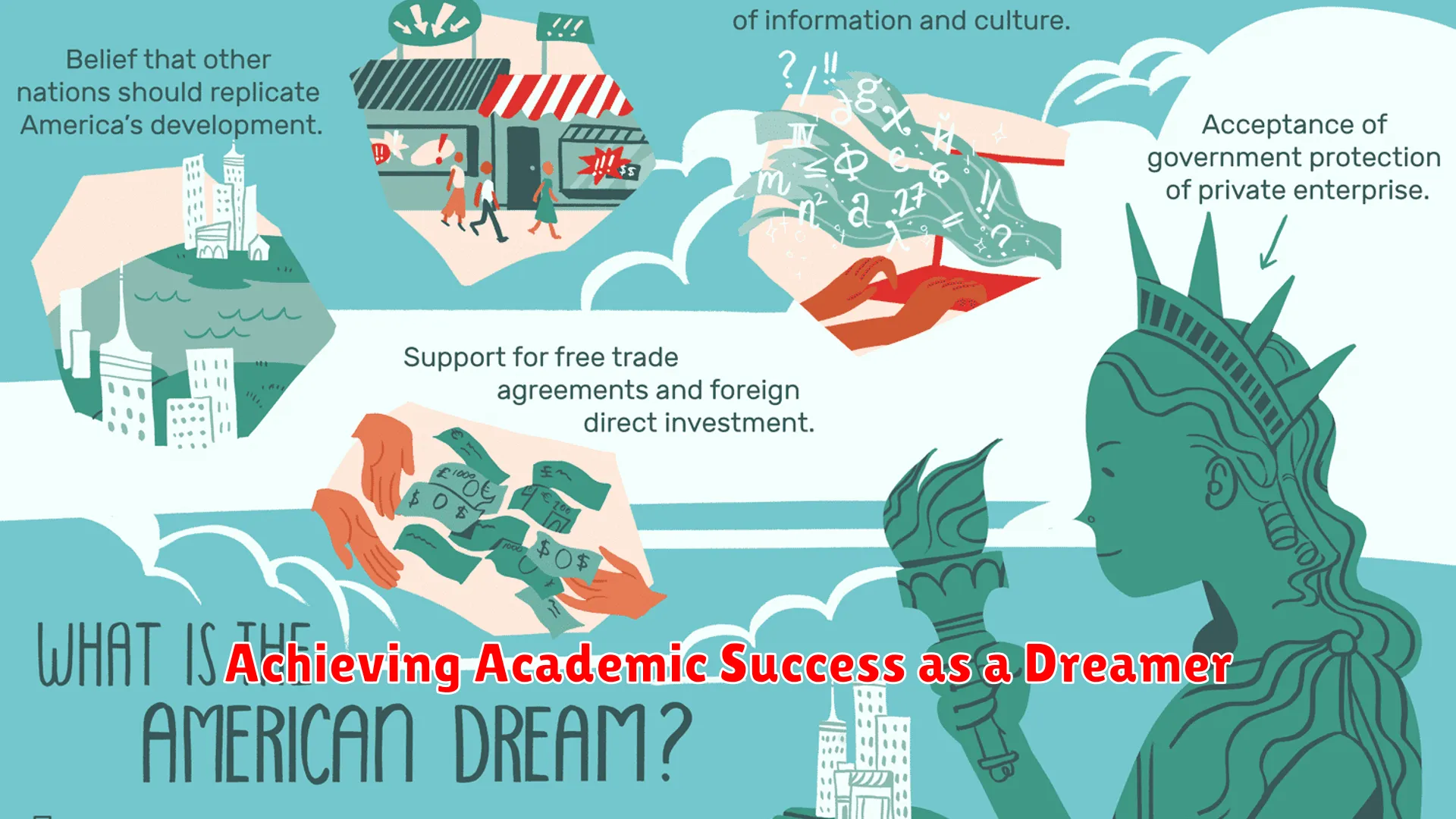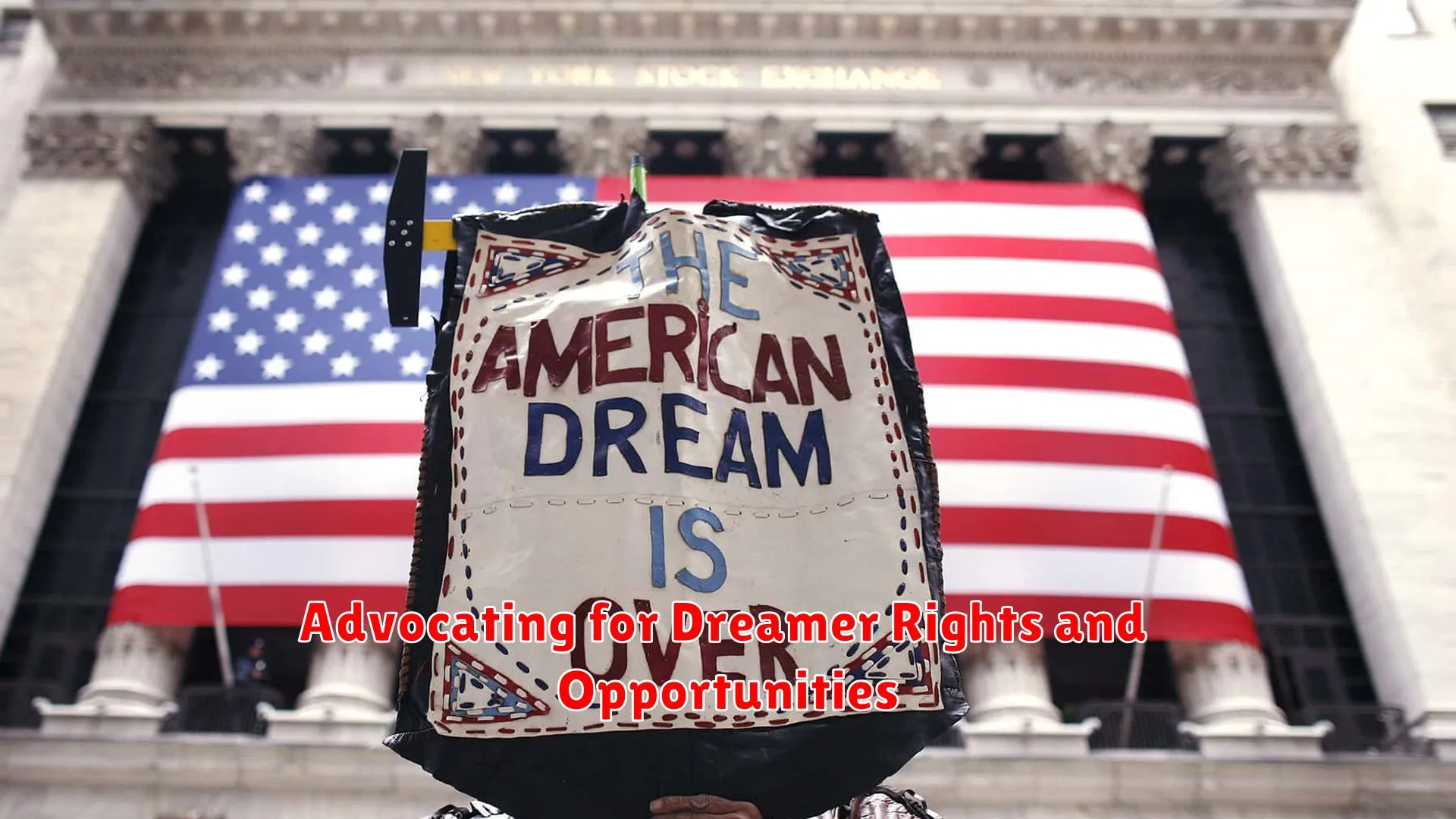Explore how scholarships in the US are turning dreams into reality for ambitious students seeking higher education.
Understanding the Dreamer Scholarship Landscape

When it comes to pursuing higher education in the United States, many dreamers face financial barriers that may seem insurmountable. However, the Dreamer Scholarship landscape offers a glimmer of hope and opportunity for those aspiring to turn their dreams into reality.
1. DACA Scholarships
One significant aspect of the Dreamer Scholarship landscape is the availability of scholarships specifically designed for Deferred Action for Childhood Arrivals (DACA) recipients. These scholarships aim to support undocumented students in their educational pursuits, providing financial assistance and access to opportunities that may have otherwise been out of reach.
2. Community-Based Scholarships
Community organizations and foundations play a crucial role in offering scholarships tailored to the unique needs of dreamers. These scholarships often focus on supporting students from immigrant backgrounds, providing not just financial aid but also mentorship and community networks to help them succeed in their academic journey.
3. University and College Scholarships
Many universities and colleges across the U.S. have established scholarship programs to support dreamers in accessing higher education. These institutions recognize the value and potential of diverse student populations and actively seek to create inclusive environments through scholarship opportunities that promote equity and diversity.
4. Private Donors and Philanthropic Organizations
Private donors and philanthropic organizations also play a significant role in the Dreamer Scholarship landscape. Through their contributions, these donors provide essential funding for scholarships that empower dreamers to pursue their academic aspirations and contribute to society in meaningful ways.
By understanding the diverse array of scholarship opportunities available to dreamers in the U.S., aspiring students can navigate the educational landscape with greater confidence and a clearer path toward achieving their academic goals.

When it comes to pursuing higher education in the United States, Dreamers face a unique set of legal and financial challenges. Dreamers, often undocumented immigrants who were brought to the U.S. as children, can encounter obstacles related to their immigration status and limited access to financial aid.
Legal challenges for Dreamers can arise from uncertain immigration policies and the risk of deportation. These uncertainties can create barriers to enrolling in colleges and universities, obtaining work authorization, and securing stable futures in the U.S.
On the financial side, Dreamers may struggle to afford the high costs of tuition, as they are typically ineligible for federal financial aid programs. This lack of financial support can make it challenging for Dreamers to pursue their academic dreams and access the opportunities that higher education can provide.
Despite these obstacles, there are resources and scholarships available to help Dreamers navigate these legal and financial challenges. Organizations and foundations dedicated to supporting undocumented students offer scholarships, legal aid, and guidance to help Dreamers fulfill their educational aspirations.
By leveraging these resources and seeking out financial assistance specifically designed for Dreamers, individuals can overcome legal and financial hurdles and turn their educational dreams into reality in the U.S.
Building a Support Network for Dreamers

In the journey from dreams to reality, having a strong support network is crucial for Dreamers pursuing scholarships in the US. Building this network involves connecting with like-minded individuals, seeking mentorship, and accessing resources that can help make their aspirations a reality.
1. Connecting with Like-Minded Individuals
One way for Dreamers to build a support network is by connecting with peers who share similar goals and aspirations. This can be done through student organizations, social media groups, or networking events where individuals can exchange ideas, tips, and encouragement.
2. Seeking Mentorship
Mentorship plays a vital role in guiding Dreamers through the scholarship application process and providing valuable insights into navigating the education system in the US. By seeking mentors who have gone through similar experiences, Dreamers can benefit from their knowledge and advice.
3. Accessing Resources
Utilizing resources such as scholarship databases, career centers, and guidance counselors can help Dreamers identify scholarship opportunities, polish their applications, and enhance their chances of securing financial aid for their education.
By actively building and nurturing a support network that consists of peers, mentors, and resources, Dreamers can bridge the gap between their aspirations and reality, empowering them to pursue their educational dreams in the US.
Achieving Academic Success as a Dreamer

For many dreamers in the United States, the path to academic success can be filled with challenges, but with determination and access to scholarships, their dreams can become a reality. Scholarships play a crucial role in supporting dreamers, often providing financial assistance that allows them to pursue higher education and achieve their academic goals.
One of the key aspects of achieving academic success as a dreamer is taking advantage of the various scholarship opportunities available specifically for undocumented students. These scholarships are designed to help dreamers overcome financial barriers and access educational opportunities that might otherwise be out of reach.
Moreover, scholarships not only provide financial support but also serve as a recognition of the hard work and potential of dreamers. By receiving scholarships, dreamers are validated in their pursuit of academic excellence and encouraged to continue striving for success.
Advocating for Dreamer Rights and Opportunities

In the United States, Dreamers, young individuals who were brought to the country as children without proper documentation, face numerous obstacles when pursuing higher education. Advocating for Dreamer rights and opportunities involves addressing these challenges and creating pathways for them to achieve their academic dreams.
Legal Protections
One crucial aspect of advocating for Dreamer rights is pushing for legislative protections, such as the Deferred Action for Childhood Arrivals (DACA) program. DACA provides temporary relief from deportation and work authorization for eligible Dreamers, enabling them to pursue education and employment opportunities without the constant fear of being removed from the country.
Access to Scholarships and Financial Aid
Ensuring that Dreamers have access to scholarships and financial aid is essential in helping them overcome financial barriers to higher education. Many organizations and universities offer scholarships specifically for Dreamers, supporting their academic endeavors and opening doors to a brighter future.
Support Services and Advocacy Groups
Advocacy groups and support services play a significant role in empowering Dreamers and advocating for their rights. These organizations offer guidance, legal assistance, and emotional support to help Dreamers navigate the complex educational landscape and assert their rights in pursuit of their dreams.
Empowering Dreamers for a Brighter Future
Empowering Dreamers through advocacy and support not only benefits the individuals themselves but also enriches society as a whole. By championing Dreamer rights and opportunities, we embrace the diversity and talent they bring to our communities, fostering a more inclusive and equitable educational system.
Conclusion
In conclusion, scholarships in the US provide opportunities for dreamers to turn their aspirations into reality, paving the way for a brighter future.




